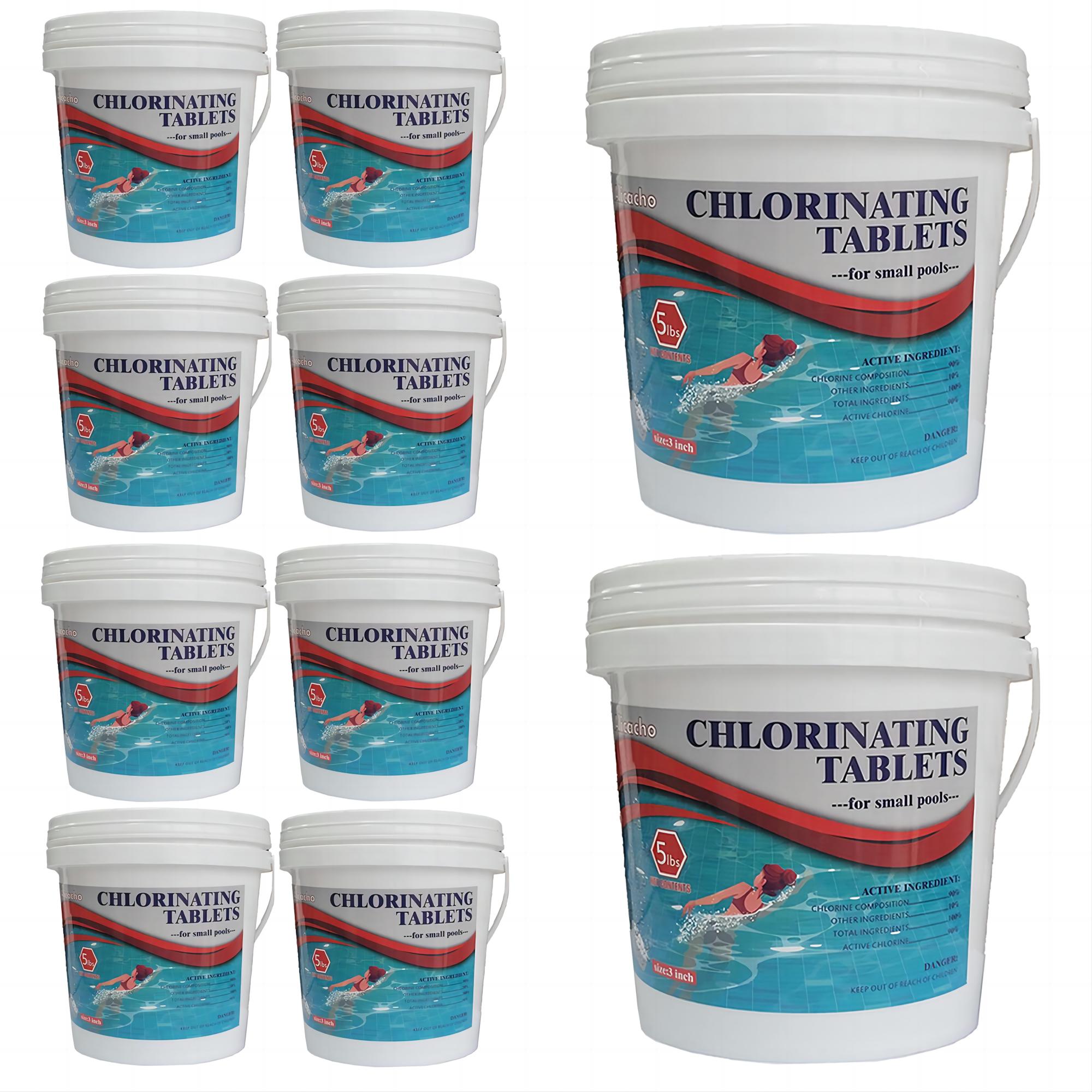Have you ever experienced a chlorine lock before? It is a condition where the chlorine in your pool water is already being ineffective, which may result to unpleasant smell and unwanted pool water conditions. If you have a pool, this post will help you a lot.
Every pool owner must have enough knowledge about chlorine lock. As this is one of the most common problems of pool owners, effective ways to get rid of it must be figured out and learned as well. It is also an important factor to be aware of the possible causes why pool water conditions may lead to chlorine lock, through these causes, solutions and preventive actions can be done to solve or avoid the said condition.
In this article, we are going to figure out what chlorine lock is, altogether with the causes and possible ways to fix it, so every pool owner can be able to resolve the issue as faster and as effective as possible.
Part 1. What Is Chlorine Lock?
One of the important factors in solving a dilemma is getting to know facts about the issue. So, let us try to figure out what chlorine lock is, in this part of the article.
As we have detailed before, chlorine lock is a state where the chlorine applied in your pool waters are being not effective anymore which can cause unwanted effects on your pool. In simple terms, it means that your chlorine is no longer working. It is not able to do its job to sanitize your pool and keep it clean and free from algae, bacteria, or parasites, anymore. Of course, there are causes why this happens, and we are going to discuss it as we go through this article.
No pool owner wants to experience such a dilemma. It can really be alarming especially to those who do not have any experience in dealing with such situations. A pool owner can be able to detect this condition when a strong bleach smell is being sensed in your pool. This means that chloramines are acting and producing such a smell which means that there is already a build up of pool water that is improperly treated.
The condition can also be detected once the pool water is tested. Once the chlorine levels in the pool are tested, including the total chlorine level, and the free chlorine levels, and the results are unequal, a chlorine lock is possibly present, since considering normal conditions, the said numbers must always be the same.
Part 2. What Causes Chlorine Lock in Swimming Pool?
So, what are the possible causes of chlorine lock in pools? There can be many of them, and we are going to have them one by one, below.
-
The pH Is Unbalanced
One of the possible causes of chlorine lock is having an unbalanced pH level. As a pool owner it is a must to know that chlorine and pH are partners and must go hand in hand in order to maintain a properly balanced pool water. pH is one of the important factors to consider, and once its level is out of hand, it can result and make other factors unbalanced too.

-
The Occurrence of Heavy Rainfall
It is also possible that a chlorine lock is caused by a heavy rainfall. This is applicable when the rainwater falls into your pool water and it is full of chemicals and particulates which can really be harmful for your pool water. As a result, chlorine present in your pool water has to fight with these particulates and chemicals which may result to increased amounts of combined chlorine levels.
-
There Is Too Much Stabilizer in Your Pool Water
Having too much stabilizer in your pool water is also not good, and may lead to chlorine lock as well. Adding too much cyanuric acid or stabilizers can block your chlorine and make it ineffective. Stabilizers are chemicals that you used to protect the chlorine injected in your pool water from burning off too fast due to ultraviolet rays.
-
Neglected Pool Water
Aside from heavy rainfall, organic chemicals and contaminants can also be caused when your pool is not well taken care of. If the pool is open and not watched or cared for a long time, it can also possibly happen. It can also be caused by winter as water can be stagnant which means it can also be untreated for a long time.
These are just some of the most common causes why a chlorine lock occurs. These ideas can be considered in order to make sure such situation is avoided. On the other hand, in case that a chlorine lock is already encountered, one should also be aware of the things that must be done, so, how can someone fix a chlorine lock?
Part 3. How do I Fix My Chlorine Lock on My Pool?
Now, that we have figured out chlorine lock and some of its possible causes, it is now needed that we also have ideas to fix it, so we could enjoy most of our time in our pools! Let us see some of the solutions to fix chlorine lock, below.
-
Add A Chlorine Neutralizer
One of the believed solutions is to add a chlorine neutralizer particularly if the detected cause of the chlorine lock is high pH levels. Chlorine neutralizers have components that can be able to raise pH levels of your pool water. These neutralizers react with chlorine in order to form a new compound which is said to be not reactive. And as a result, chlorine will be unlocked and the cycle of it performing its function will now properly take place.
-
Try To Drain the Pool Partially
If you have determined that the caused of the chlorine lock in your pool is the accumulation of too much cyanuric acid, then you can initially try to partially drain the pool and refill it again. By doing so, you lower the concentration of the cyanuric acid present on the pool water. It is a very important thing to always monitor the level of cyanuric acid as it does not dissipate and will just continue to be accumulated as time goes by. You can use a submersible pump to drain one fourth of the pool water, and then refill it again using fresh water once done.
-
Do Shock Treatment
Another one of the most effective ways to battle chlorine lock is to do shock treatment. This one is applicable if the primary reason of the chlorine lock is the presence of high levels of chloramine. The treatment will involve raising the level of the chlorine in your pool to a really high concentration for a short period of time. Chlorine shocks help reach breakpoint chlorination, rapidly reducing residual chlorine by breaking up chloramine chemical bonds. Ensure your water's pH is between 7.2 and 7.6 before using this method.
You should be mindful in following all the procedures in doing a proper shock treatment as it can be dangerous if not used properly.
-
Try to Use a Chemical Additive
Another solution that you can try to battle chlorine lock is to use a chemical additive. There are a few of them that can be used against chlorine lock. Some of which are ascorbic acid, potassium permanganate, and sodium thiosulfate. You have to determine the specific additive that you should use based on the cause of the chlorine lock.
You need to use ascorbic acid when the cause of the chlorine lock is the over accumulation of cyanuric acid. This additive will help you lower the level of cyanuric acid on your pool water. As we have said before you should always be mindful on the levels of the acid on your pool water as it does not dissipate and can continue to accumulate in the pool water as time goes on.
On the other hand, potassium permanganate is used if the cause of your chlorine lock is the high levels of organic water on your pool. Once this additive is used, these organic matters in your pool water will be broken down and be removed in the water as well.
And the last additive we have here is the sodium thiosulfate which must be used when you obtained chlorine lock due to high pH levels. This additive will react with chlorine in order to form a new compound which is not reactive, and will cause the chlorine to be unlocked, and be able to do its job! And there you are! These are only some of the possible fixes a pool owner can try if chlorine lock is encountered. Any of which can be done based on the identified cause of chlorine lock.
Part 4. Conclusion
Every pool owner should always deal with pool problems with caution. A chlorine lock is not a simple situation, and must be acted upon as soon as possible. We hope that with the help of the facts obtained from reading the parts of this writing above, we could be able to help you make sure your pool water is clean from any form of algae, parasites, or bacteria. And it is always best to make sure that chlorine is doing its task to maintain the cleanliness of your pool water, all the time!




